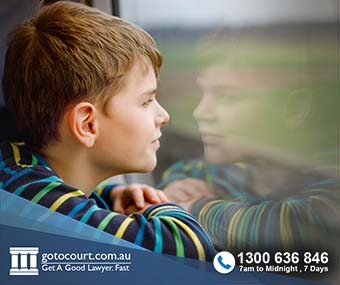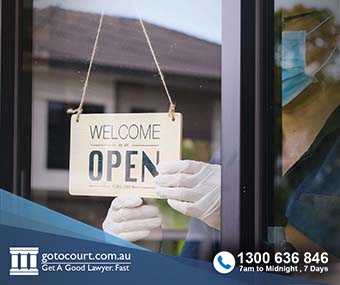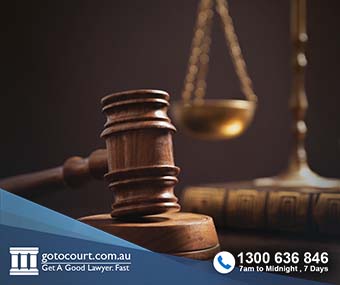Call our lawyers
now
or,
have our lawyers
call you
Proposed Changes for Victims Giving Evidence (Qld)
Proposed Changes for Victims Giving Evidence (Qld)
In criminal proceedings in Queensland, the law permits special measures to be implemented in cases involving special witnesses such as children, victims of alleged family violence, victims of alleged sexual violence and witnesses who have a physical, mental or intellectual impairment. These measures include excluding the accused from the courtroom while the witness is giving evidence, having the accused obscured from the witness’s view while they are giving evidence, and having a support person present while the witness is giving evidence.
The Queensland government is in the process of passing legislation that will strengthen the protections that are extended to witnesses who are victims of alleged family violence or sexual offending to deliver a better experience when these individuals are engaging with the criminal justice process. This page outlines the proposed changes to the laws that apply when these categories of witnesses are giving evidence in criminal matters.
Special witnesses giving evidence
Under section 21A of the evidence act 1977, a special witness is a witness who is:
- under the age of 16
- a person who is likely to be disadvantaged as a witness because of intellectual, physical, or mental impairment
- a person who is likely to suffer severe emotional trauma
- a person who is likely to be so intimidated that they are disadvantaged
- a person who is to give evidence against a criminal organisation or a member of the criminal organisation
- a person who is to give evidence against a person who is alleged to have committed domestic violence against them
- a person who is to give evidence against a person who is alleged to have committed a sexual offence against them.
Under the Criminal Justice Legislation (Sexual Violence and Other Matters) Amendment Bill 2024, when a victim of alleged family violence or sexual violence is to give evidence, there will be a presumption in favour of the court making orders to:
- have a prerecording of the victim’s evidence taken, which will be admissible in certain proceedings, including any rehearing or retrial that is held, another proceeding arising out of the present proceeding, and any civil proceeding that arises from the commission of the offence;
- have a support person present while they are giving evidence; and
- to allow them to give evidence from a room other than the courtroom.
Experts giving evidence
Under the changes, expert evidence about the nature and effect of sexual violence will be admissible in a court proceeding involving sexual offending in order to dispel myths about how victims should behave during or after an incident of violence. This provision has been introduced because of concerns heard by the Women’s Safety and Justice Task Force about the operation of misconceptions about victims of sexual offending and how these misconceptions can operate to the detriment of an alleged victim during the criminal justice process.
Tendency evidence
The Bill also introduces changes to bring Queensland’s laws on coincidence evidence and propensity evidence into line with the laws of other states, as Queensland has previously had the most restrictive laws on the admission of tendency evidence in Australia.
Other changes
The Bill also includes changes to the Criminal Code by introducing two new offences relating to sexual contact between adults and children.
The Bill also provides that in criminal cases involving allegations of sexual offences or family violence offences, the court may hold directions hearing to consider the communications needs of the alleged victims.
The bill also provides for the changes to be reviewed five years after the legislation comes into effect.
Reasons for the reforms
The amendments follow the tabling of two reports by the Women’s Safety and Justice Task Force, the Hear her voice – Report One – Addressing coercive control and domestic and family violence in Queensland (Report One) and Hear her voice – Report Two – Women and girls’ experiences across the criminal justice system.
The first report made recommendations for changes to our justice system deals with family violence matters. The second report made recommendations how the criminal justice system deals with victims of sexual violence.
Attorney-General Yvette D’arth said:
“We need to ensure that victim-survivors of domestic, family and sexual violence are not further traumatised by going through the legal process.
“The reforms will improve the court experience of victim-survivors and reduce the risk of causing them further harm.’
If you require legal advice or representation in any legal matter, please contact Go to Court Lawyers.

Affordable Lawyers
Our Go To Court Lawyers will assist you in all areas of law. We specialise in providing legal advice urgently – at the time when you need it most. If you need a lawyer right now, today, we can help you – no matter where you are in Australia.How It Works






1. You speak directly to a lawyer
When you call the Go To Court Legal Hotline, you will be connected directly to a lawyer, every time.

2. Get your legal situation assessed
We determine the best way forward in your legal matter, free of charge. If you want to go ahead and book a face-to-face appointment, we will connect you with a specialist in your local area.

3. We arrange everything as needed
If you want to go ahead and book a fact-to-face appointment, we will connect you with a specialist in your local area no matter where you are and even at very short notice.











